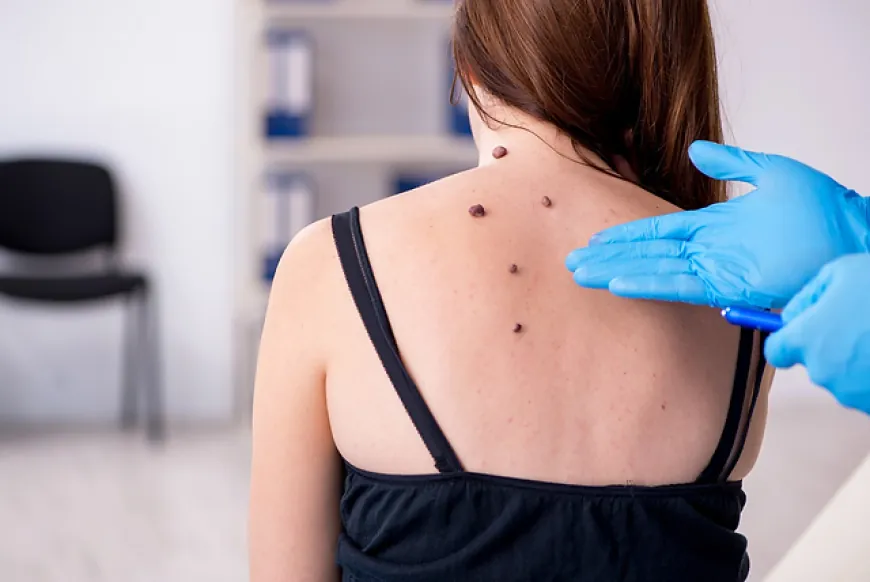Do skin tags spread?

Skin tags, also known as acrochordons, are small, benign growths that often appear on the skin, particularly in areas where skin rubs against skin or clothing. While they are generally harmless, many people wonder if these growths can spread or multiply. This article delves into the nature of skin tags, their potential to spread, and effective Skin Tag Removal in Dubai
Understanding Skin Tags
Skin tags are composed of collagen fibers, blood vessels, and a covering of skin. They typically appear as soft, small, flesh-colored or slightly darker growths. Common locations for skin tags include the neck, armpits, groin, and eyelids. The precise cause of skin tags remains unclear, but several factors can contribute to their development, including genetics, obesity, diabetes, and hormonal changes.
When discussing the question of whether skin tags spread, it's important to note that skin tags themselves do not spread in the same way that infectious diseases do. They do not "contagiously" spread from person to person. However, they can multiply in the same individual. Factors such as friction, skin irritation, and hormonal fluctuations can lead to the development of additional skin tags over time. So while skin tags don’t spread to others, they can certainly appear in greater numbers on the same person.
Do Skin Tags Multiply?
Many people with skin tags notice that they tend to develop more as they age. This increase is often attributed to the same risk factors that led to the initial formation of skin tags. Friction is a significant factor; areas of the skin that frequently rub together, such as the underarms or neck, are particularly prone to developing these growths.
Hormonal changes can also play a role. For example, pregnant women often experience hormonal fluctuations that can lead to the formation of new skin tags. Additionally, individuals with insulin resistance or obesity may notice an increase in skin tags as their body experiences changes related to these conditions.
It’s crucial to understand that while you may see a rise in the number of skin tags, this is not an indication that they are spreading or multiplying in a contagious manner. Each new tag develops independently based on individual risk factors.
Skin Tag Removal Options in Dubai
If you're dealing with skin tags and are looking for effective removal options in Dubai, there are several methods available. Each method varies in effectiveness, recovery time, and potential side effects.
1. Cryotherapy
Cryotherapy involves freezing the skin tag with liquid nitrogen. This method effectively destroys the tissue and causes the skin tag to fall off after a few days. It is a quick and relatively painless procedure that can be performed in a dermatologist's office. However, it may not be suitable for larger skin tags or those located in sensitive areas.
2. Electrosurgery
Electrosurgery uses high-frequency electrical currents to remove skin tags. This method is effective for larger tags and can also minimize bleeding during the procedure. After the skin tag is removed, the area may take some time to heal, but most patients experience minimal discomfort.
3. Ligation
Ligation involves tying off the base of the skin tag with a surgical thread. This method cuts off the blood supply to the skin tag, causing it to eventually fall off. It is a simple and low-cost option, although it may not be as quick as cryotherapy or electrosurgery.
4. Laser Removal
Laser removal is another effective option, especially for larger or more stubborn skin tags. A laser targets the blood vessels in the skin tag, causing it to shrink and eventually disappear. This method is precise and minimizes damage to surrounding skin.
5. Home Remedies
Some individuals opt for home remedies, such as tea tree oil, apple cider vinegar, or over-the-counter products. While these methods may work for some people, they are generally less effective than professional treatments. Additionally, there’s a risk of irritation or allergic reactions, making it essential to proceed with caution.
Conclusion
Skin tags are a common skin condition that can lead to questions about their behavior, particularly whether they spread. While skin tags do not spread from person to person, they can multiply on the same individual due to various factors, including friction and hormonal changes. If you find yourself with multiple skin tags and are seeking effective removal options, Dubai offers various professional treatments. Consulting with a dermatologist will help you determine the best approach for your needs, ensuring safe and effective results.
In summary, while skin tags can be a nuisance, understanding their nature and removal options can empower you to take control of your skin health.
What's Your Reaction?
 Like
0
Like
0
 Dislike
0
Dislike
0
 Love
0
Love
0
 Funny
0
Funny
0
 Angry
0
Angry
0
 Sad
0
Sad
0
 Wow
0
Wow
0














































